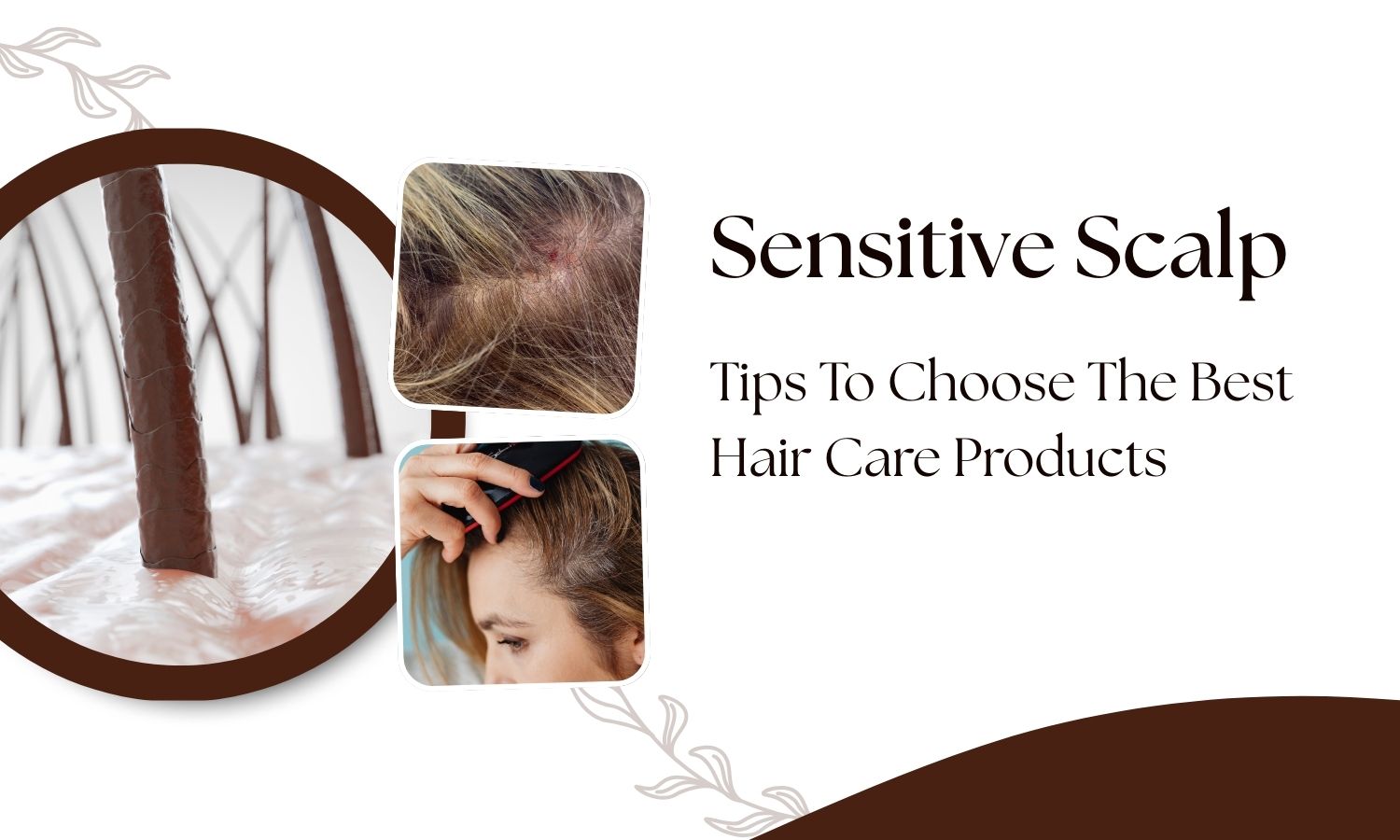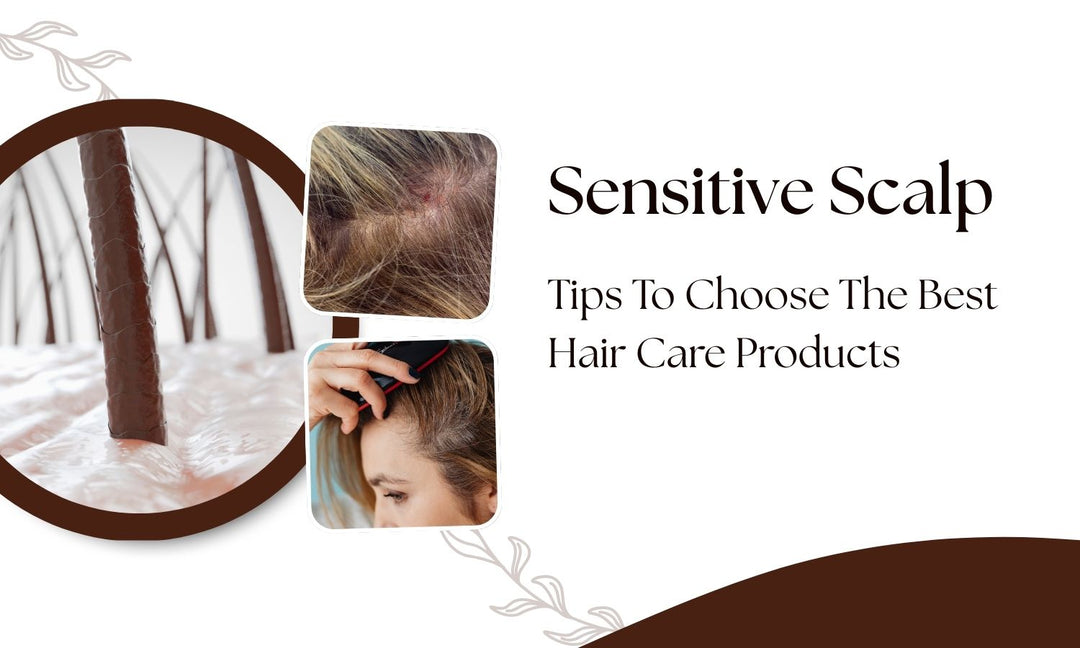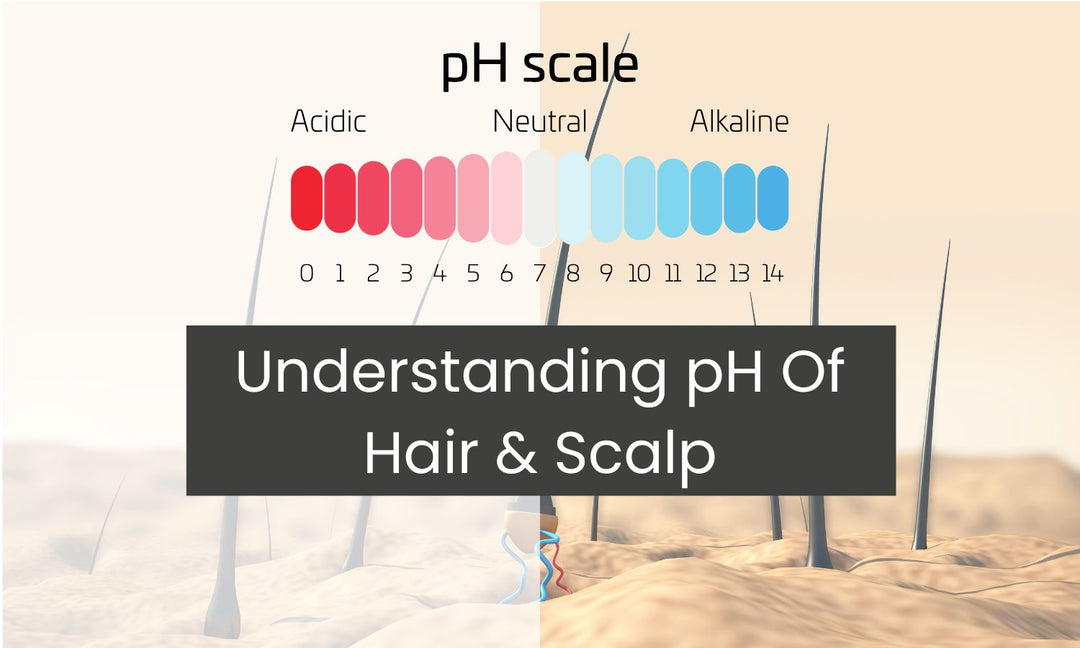Signs of Sensitive Scalp and How to Choose the Right Hair Care Products

A healthy scalp is the foundation of strong, shiny hair. But for many people, the scalp becomes easily irritated, itchy, or painful, common signs of a sensitive scalp that are often overlooked. If you’ve been experiencing frequent discomfort, flakiness, or redness, it might be more than just a bad hair day. Understanding the symptoms of a sensitive scalp, its causes, and the right approach to care can make a huge difference in your overall hair health.
What is a Sensitive Scalp?
A sensitive scalp isn’t a medical condition by itself but rather a reaction to internal or external triggers. It occurs when the scalp’s natural protective barrier is compromised, leaving it vulnerable to irritation. People with a sensitive scalp may notice burning sensations, tightness, or even pain when using certain hair care products or after exposure to environmental factors.
Common Signs of Sensitive Scalp
If you’re unsure whether you’re dealing with scalp sensitivity, here are the most common sensitive scalp symptoms:
-
Itchiness or burning sensation after using shampoos or dyes.
-
Redness and visible irritation on the scalp.
-
Flakiness or dryness that persists even after conditioning.
-
Tightness or discomfort after washing or styling.
-
Hair breakage or thinning caused by scalp inflammation.
-
Increased sensitivity to temperature changes (cold or heat).
Recognising these symptoms of a sensitive scalp early can help you prevent long-term scalp damage.
Causes of Sensitive Scalp
Several factors can trigger scalp sensitivity, including:
-
Harsh chemicals in hair dyes and shampoos (sulphates, parabens, ammonia).
-
Allergic reactions to synthetic fragrances or preservatives.
-
Environmental stressors such as pollution, dust, and UV rays.
-
Excessive heat styling strips away moisture.
-
Underlying skin conditions like eczema, psoriasis, or seborrheic dermatitis.
-
Hormonal fluctuations and stress affect scalp health.
Identifying the causes for a sensitive scalp is the first step in creating a care routine that soothes rather than worsens the condition.
How to Treat a Sensitive Scalp
If you’ve been struggling with irritation, you’re likely wondering how to treat a sensitive scalp. The good news is that scalp sensitivity can often be managed with the right approach:
1. Switch to Mild, pH-Balanced Cleansers
Avoid harsh shampoos that strip natural oils. Instead, use sulphate-free shampoos with a near-neutral pH to cleanse gently without irritating the scalp.
2. Hydrate and Nourish
Look for products enriched with natural oils like argan, jojoba, or coconut oil. They provide moisture and strengthen the scalp barrier.
3. Limit Chemical Exposure
If you colour your hair, opt for pH-neutral and hypoallergenic hair colour instead of conventional dyes. These alternatives are formulated without ammonia or harsh developers, making them suitable for those prone to scalp sensitivity.
4. Incorporate Soothing Ingredients
Aloe vera, green tea, and chamomile are well-known for their calming and anti-inflammatory benefits. Regular use helps ease irritation naturally.
5. Protect Against Environmental Damage
Cover your head under the sun, and wash off pollutants and sweat with a gentle, natural hair cleanser.
How to Treat a Sensitive Scalp Naturally
If you prefer natural care, here are simple at-home methods to reduce sensitivity:
-
Aloe vera gel massage – calms inflammation and cools the scalp.
-
Coconut oil application – locks in hydration and reduces dryness.
-
Green tea rinse – soothes irritation while improving circulation.
-
Fenugreek seed paste – nourishes the scalp and reduces itching.
When combined with chemical-free products like herbal shampoo & conditioners, these remedies help restore balance without aggravating the scalp.
Choosing the Right Hair Care Products for a Sensitive Scalp
Finding the right products is crucial when you’re dealing with scalp sensitivity. Here’s what to look for:
-
Free from sulphates, parabens, and synthetic fragrances.
-
Dermatologically tested formulas designed for sensitive skin.
-
pH-balanced shampoos and conditioners that protect the scalp’s barrier.
-
Moisture-sealing oils and serums to prevent dryness.
-
Natural hair cleansers enriched with botanicals instead of harsh chemicals.
Choosing wisely not only relieves irritation but also promotes long-term scalp and hair health.
Final Thoughts
A sensitive scalp may seem frustrating, but it’s your body’s way of telling you to care for it more gently. By identifying the symptoms of a sensitive scalp, avoiding harsh triggers, and investing in safe, pH-balanced products, you can restore comfort and achieve healthier hair.
Switching to natural cleansers, soothing oils, and mild formulations can go a long way in treating scalp discomfort effectively. If you’ve been struggling with hair fall, dandruff, or irritation due to chemical-heavy products, now is the perfect time to embrace scalp-friendly alternatives that prioritise both hair beauty and scalp wellness.
Also Read:
What Is The pH Of Your Hair and Scalp? | How is Your Regular Hair Dye Causing Hair to Fall Out? | Herbal pH Neutral Hair Colour | Cold Pressed Oils




